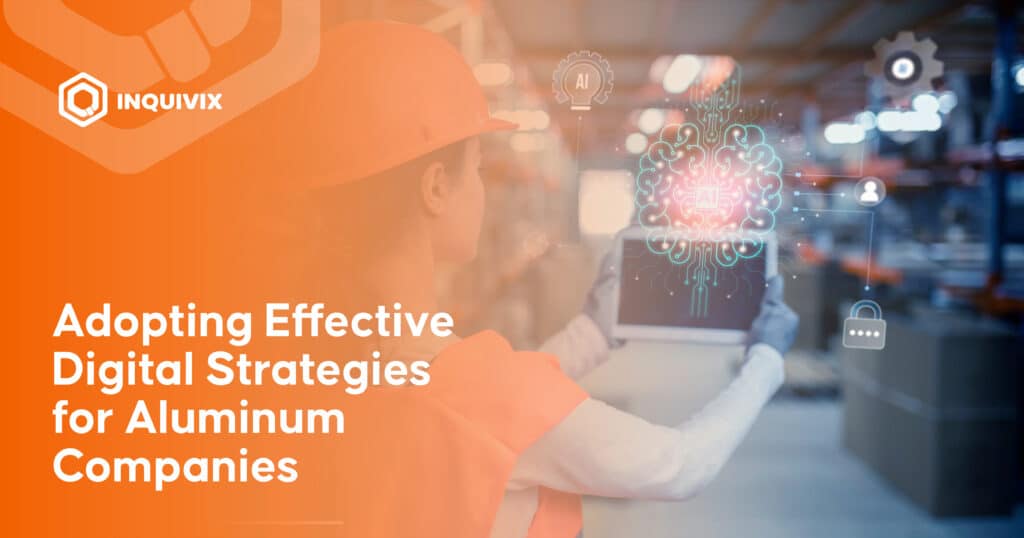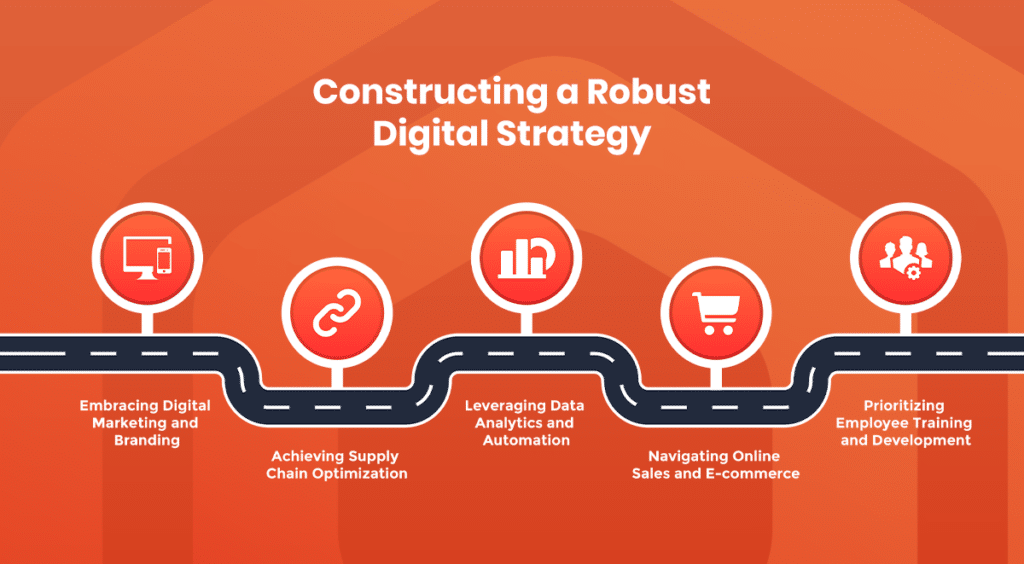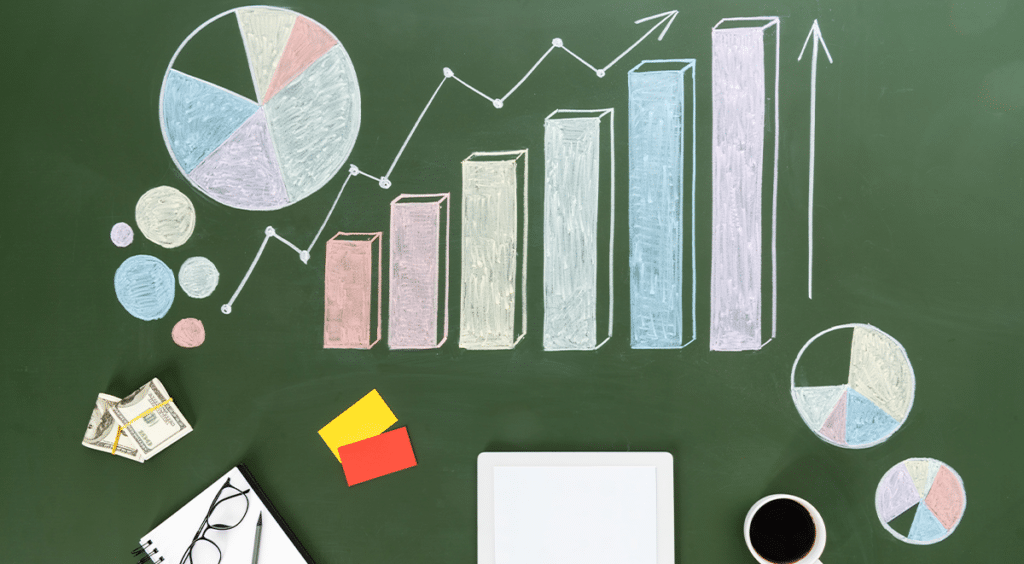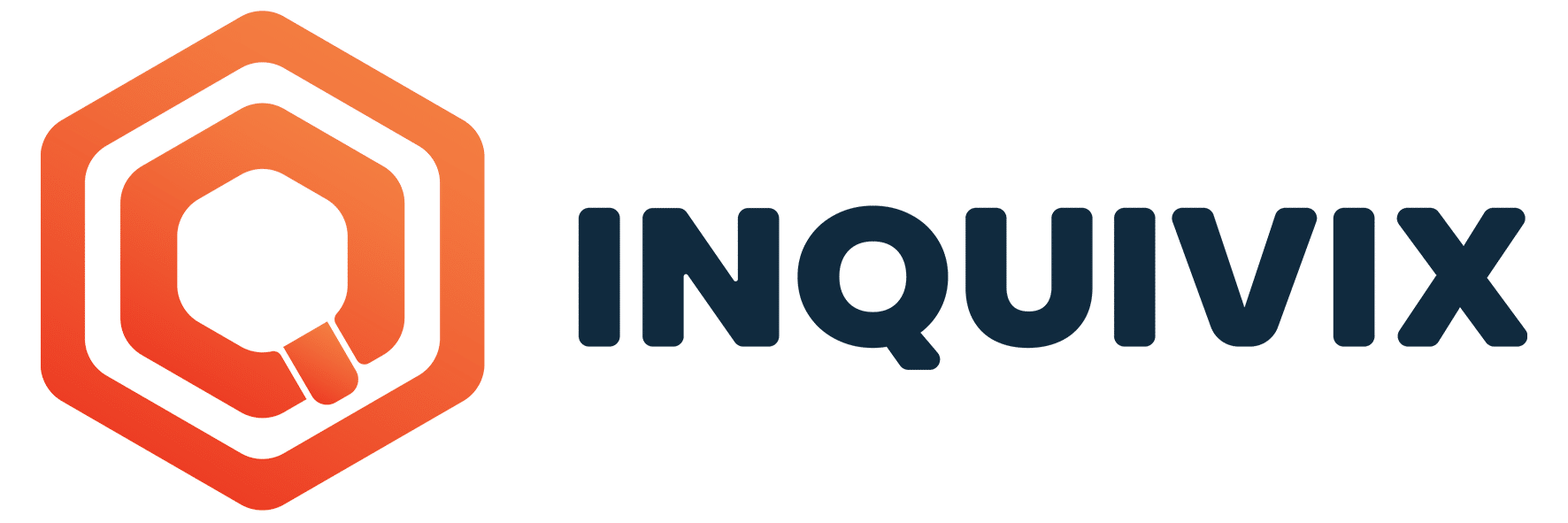Inquivix HQ
1-903, 18 Eonju-ro 146-gil,
Gangnam-gu, Seoul, Korea
06057

In the rapidly transforming digital world, adopting digital strategies is an essential strategy for businesses, particularly for the aluminum industry. These strategies pave the way for optimized productivity, an enhanced manufacturing process, and a stronger value chain. By leveraging artificial intelligence and the use of digital technologies, companies can upgrade their aluminium production of primary aluminium and alumina. Partnering with Inquivix, a frontrunner in digital marketing, offers aluminum companies the chance to experience a comprehensive digital transformation journey uniquely designed for their needs, thus allowing a significant leap in efficiency.
Table of Contents
Deconstructing Challenges in the Aluminum Industry

Countering Global Competition and Market Volatility
The global aluminum market grapples with an intensified competition that triggers unpredictable price movements. The fluctuations in primary aluminium and alumina prices pose challenges for companies in maintaining profitability. With the growing competition projected to escalate further by 2023, aluminum companies need robust digital strategies to withstand these market storms.
Navigating Sustainability Concerns and Regulatory Directives
Environmental sustainability is a pivotal concern in the aluminum Sector, with stringent regulations in place to ensure energy consumption conservation and waste reduction. The push toward recycling and sustainability demands an efficient and intelligent use of resources. It’s here that automation and digitalization play a crucial role, helping companies meet these norms without compromising efficiency.
Responding to the Swift Shifting Consumer Preferences
In the digital age, consumer expectations are continually evolving, with a demand for transparency and faster services. Aluminum companies, therefore, need to adapt dynamically and leverage digital tools to enhance customer satisfaction, achieving better control over the production process and staying competitive in the global aluminium sector.
The Role of Digital Strategies in Thrusting Growth for Aluminum Companies

Boosting Efficiency and Productivity via Digitalization
Digital conversion is a significant catalyst in improving productivity in the aluminum Sector. By adopting digital manufacturing driven by Industry 4.0 technologies such as IoT (Internet of Things), artificial intelligence (AI), and machine learning, companies can automate several aspects of their manufacturing process. This automation reduces manual tasks, increases accuracy, and speeds up production times, ultimately enhancing efficiency.
Assuring Cost Savings and Profitability through Optimization
Digital strategies can lead to substantial cost savings and elevate profitability. By leveraging big data analytics, companies can predict trends, optimize operations, and reduce waste and operational costs. Furthermore, the integration of digital manufacturing into the value chain enhances efficiency and yield, leading to a surge in profitability.
Elevating Customer Engagement and Satisfaction through Digital Channels
Digital strategies also facilitate better customer engagement. They enable personalized interactions with customers, ensuring quick responses to queries and feedback. This seamless and transparent communication fosters robust relationships with partners and customers, leading to increased customer satisfaction, loyalty, and sales.
Constructing a Robust Digital Strategy: A Blueprint for Aluminum Companies

Embracing Digital Marketing and Branding
In an increasingly digital world, digital marketing forms the backbone of a robust digital strategy. The power of SEO and effective online branding can help aluminum companies boost visibility, attract potential customers, and enhance their brand image in the global aluminum industry.
Achieving Supply Chain Optimization
The use of digital tools can provide real-time transparency into the supply chain, allowing for better control over the production process and the ability to make swift, data-driven decisions. This capability is a vital component in optimizing the aluminium value chain and improving the efficiency and intelligent use of resources across the production process.
Leveraging Data Analytics and Automation
With big data analytics, automation, and AI, aluminum companies can harness the power of their data. These modern technologies can provide valuable insights, improve process control, and drive strategic decision-making, ultimately leading to performance and efficiency enhancement.
Navigating Online Sales and E-commerce
The advent of the digital age has made online sales and e-commerce an essential component of any business strategy, including for aluminum companies. Embracing these platforms can help companies serve a wider customer base, elevate their market presence, and enhance profitability.
Prioritizing Employee Training and Development
Regular training ensures employees are equipped with the necessary skills to effectively use new digital tools and platforms. A workforce proficient in Solutions is a key asset for any company undertaking a digital conversion journey.
Overcoming Hurdles in the Path to Digital Transformation

Tackling Resistance to Change and Bridging the Technological Expertise Gap
Change is never easy, and digital conversion is no exception. It is crucial to manage resistance to change and ensure the organization as a whole understands and embraces the benefits of digitalisation. Building the necessary technical expertise is another key challenge that can be overcome with regular training and development initiatives.
Ensuring Data Security and Privacy
With the integration of modern technologies comes the responsibility of ensuring data security. Robust security measures and frameworks are vital to protect sensitive data and maintain customer trust.
Integrating Digital Strategies with Existing Systems
The successful implementation of digital strategies involves seamless integration with existing systems and processes. This integration requires careful planning, customization of digital solutions, and often a shift in the company’s operational paradigm.
Allocating Resources and Budget Effectively
For many aluminum companies, budget and resource constraints can pose a challenge. Effective planning and resource management, along with strategic partnerships with digital experts like Inquivix, can help overcome these constraints and ensure successful digital conversion.
Sustaining and Amplifying Digital Strategies: Best Practices

Regular Review and Analysis for Continuous Improvement
With the influx of new technologies and the internet of things (IoT), aluminum companies can leverage substantial data. Regular data analysis can facilitate strategic decision-making and continuous improvement in this digitally advanced manufacturing industry.
Employee Training and Development
Adopting digital manufacturing necessitates an adept workforce. Regular training enables your employees to utilize simulation tools effectively, empowering your company to thrive in the evolving manufacturing industry.
Seeking Feedback for Optimization
Feedback from customer’s is an invaluable resource for refining digital strategies. By welcoming and acting on customer insights, aluminum companies can continually optimize their digital strategies, enhancing customer satisfaction and fostering loyalty.
The Future of the Aluminum Industry: Powering Success with Digital Strategies
In the swiftly changing business world, aluminum industry enterprises must seize digital conversion to power their growth and prosperity. By integrating potent digital marketing strategies and introducing digital technologies, these businesses can overcome hurdles, amplify efficiency, and boost customer satisfaction. Don’t delay. Kickstart your journey towards digital conversion, and let Inquivix guide your business to unparalleled success as a reliable ally.

FAQs
digital conversion in the aluminum industry boosts competitiveness, streamlines operations, and enhances efficiency. It’s key to automate processes, optimize supply chains, and meet evolving customer demands.
Starting digital conversion involves identifying processes for digitalization, developing a strategic implementation plan, training employees, ensuring data security, and partnering with digital marketing experts like Inquivix for guidance.
Challenges during digital conversion include resistance to change, budget constraints, lack of expertise, data security issues, and integration with existing systems. Clear communication, training, robust security measures, and careful planning can help overcome these hurdles.
